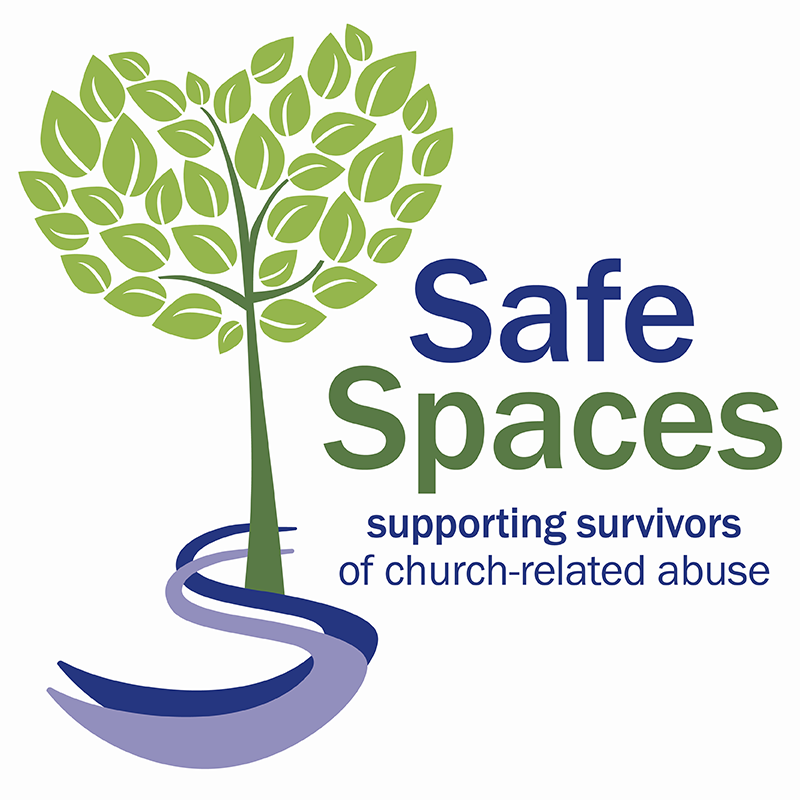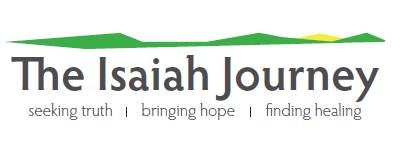
Safeguarding Statement
The Archdiocese of Birmingham has a zero-tolerance approach to all Abuse.
Archdiocese Safeguarding website:
https://www.birminghamdiocese.org.uk/Pages/FAQs/Category/safeguarding
Reporting abuse
If you are concerned about the welfare of a child or adult at risk, do not delay in contacting the police, using 999 if a child or adult is believed to be in immediate danger.
It is the policy of the Catholic Church in England and Wales to report all allegations of abuse to statutory authorities, regardless of whether the abuse occurred recently or in the past, or whether the accused person is living or deceased.
As per the code of conduct, if you are in any role within the Catholic Church in England and Wales, you must refer allegations directly to the Safeguarding Team in your diocese or religious congregation, or directly to the police.
If you are a member of the public, please refer allegations directly to the police and to the Diocesan Safeguarding office on 0121 230 6240 (safeguarding@rcaob.org.uk).
All Church activity should provide a safe environment which promotes and supports the wellbeing of everyone and protects them from harm.
The Catholic Church in England and Wales has committed to a common set of National safeguarding standards to help protect children and adults who may be vulnerable or at risk. Each Diocese has a Safeguarding Team and a Trustee Sub Committee, which has oversight of that work.
Each parish has a Safeguarding Representative. Your Parish Safeguarding Representative is Elizabeth Moran who can be contacted at sg.olhoc.oxford@rcaob.org.uk
They provide the link between the parish and the safeguarding team, promote safe practice in all activities involving children and adults and advice on safeguarding matters in the parish.
The Diocesan Safeguarding Team
0121 230 6240 or safeguarding@rcaob.org.uk
They provide advice to safeguarding representatives and parish priests and manage more serious safeguarding concerns. They have responsibility for Diocesan-wide policy, practice and training and safer recruitment processes.

Educare Online Safeguarding Training
Free to access modules in child and adult safeguarding, email educare@rcaob.org.uk for further information.
Support for those affected by abuse in the Church

Safe Spaces is a free and independent support service for anyone who has experienced abuse in relation to the Church of England, the Church in Wales or the Catholic Church of England and Wales. This could be abuse by someone who holds any role at the church or is linked to participating in a church-led activity or group.
If you have been affected, however long ago, Safe Spaces can provide you with support. You do not have to have told the police or the church authorities, and you do not have to still be involved with the church. Your information will not be shared without your consent unless you or someone else is in immediate danger.
The Safe Spaces team is available through its helpline and live chat service between Monday-Friday 9am to 9pm, Saturday 9am-1pm and Sunday 1pm-5pm.
Telephone: 0300 303 1056
Email: safespaces@firstlight.org.uk
Website: safespacesenglandandwales.org.uk

A Guide for Survivors of Abuse
"I was abused by someone in the Church. I was so afraid of saying anything — of not being believed. Now I have spoken, I need to know what happens next, and have some control."
The Isaiah Journey is a working group of the Bishops’ Conference of England and Wales which has grown out of the need for a pastoral-spiritual response to the suffering of victims and survivors of abuse in the Church.
Sorry doesn’t feel enough…
The very fact that you are reading this leaflet perhaps means you are seeking some support. And our first words to you come from the heart — we are deeply sorry for the abuse that you have suffered, from the moment the abuse began, and for every day after that you have lived your life as a survivor.
Saying that we are sorry just doesn’t feel enough, but please know that you are believed, that you are not to blame, that the abuse should never have happened to you. We are a church of people committed to a zero tolerance approach to any kind of abuse whether current or historic. We are a church of people who wish to make atonement for the devastation caused by abuse.
Thank you for your bravery in coming forwards. We sincerely hope that we can be there for you, and stand with you, and somehow support you on a path to healing.
This leaflet has been prepared to provide some practical guidance to the steps and actions that may happen once you have disclosed the abuse and who you can speak to if you wish to disclose.
I want to report the abuse I suffered, who can I tell?
Every Diocese and Religious Order is required to have Safeguarding Arrangements in place. Public places of worship have Safeguarding Notice boards that display contact details of who you can tell. This could be your Parish Safeguarding Representative, Parish Priest, Deacon, Religious Sister, or Religious Brother.
Please get in contact with the person you feel most comfortable talking to, and they will put you in touch with the Diocesan Safeguarding Co-ordinator. You will be listened to.
The person who abused me isn’t connected to the Church? Can I still talk to somebody?
Yes, absolutely. You will be listened to. Whilst there will be no internal processes for the Church to follow, we can support reporting to the Authorities and signpost you to the right support for you. Please, get in touch with us. We are here to listen and help.
I’ve reported the abuse — what will happen to the accused?
It is the policy of the Catholic Church in England and Wales to report to the statutory authorities, all allegations of abuse made against those working in the name of the Church, regardless of whether the allegations or concerns relate to a person’s behaviour in relation to their role within the Church or another setting.
What if I don’t want to go to the Police?
Not all survivors want to go through the criminal justice system. We understand this, but have to balance this with the need to keep others safe. We are able to report allegations of abuse against perpetrators anonymously, that is without giving survivor’s details to the statutory services. A Safeguarding Privacy Notice will be shared with you and will tell you more about this.
The person who abused me is deceased. How can I get justice?
A report will still be made to the statutory authorities. The church will look back on historical records for the accused and will share anything of relevance with the police.
Whilst no legal sentence could be imposed on the deceased perpetrator, at the very least, the Church has committed to support any investigation into what happened to you. Importantly, we need to really listen and learn from you, and together work towards ensuring abuse is no longer a reality or threat within the Church, which should be a safe, protective space for all. You teach us how we can be our best in supporting all survivors of abuse.
The person who abused me has a role in the Church. How will others be protected from them?
Please be reassured that the national Catholic Safeguarding Standards Agency (CSSA) requires dioceses and orders it regulates to have a policy in place to carefully manage those with roles in the Church who are subjects of allegations of abuse, you can ask to see a copy of the policy.
https://www.catholicsafeguarding.org.uk
What might happen to the accused?
- Police investigation of possible criminal offence
- Enquiries/assessment by local authority social services for children/adults.
- Other actions: disciplinary action, referral to DBS
- Strategy meeting to plan enquiries, allocate tasks, set timescales.
Statutory Agencies will provide advice to the Safeguarding Co-ordinator on management of risk. Temporary removal from active ministry is informed by statutory agencies and the Safeguarding Committee.
If the accused person is convicted of an offence, or if there is no conviction but concerns remain about their conduct towards children or adults and the person still holds a role within the Church, action will be taken which may include commissioning an independent risk assessment and/or putting in place a Safeguarding Plan in consultation with the relevant statutory authorities to help manage risk.
How will I be kept informed?
Your designated Safeguarding Co-ordinator will be your point of contact throughout investigations. An agreement will be made between you and the safeguarding co-ordinator considering your preferred method of contact, and if face-to-face, the location that feels safe for you. You can also make arrangements about frequency of contact.
Whilst the Co-ordinator will keep you informed as much as possible, there may be certain information that cannot be shared, because doing so might compromise or prejudice any ongoing investigations or for reasons of confidentiality and data protection.
A record of contact and progress in the case will be kept and retained securely by the Safeguarding Co-ordinator.
What support will be offered?
Support will vary based on what is available locally, but you will be offered access to counselling, and signposted to groups and organisations that other survivors have found helpful. The Isaiah Journey group provide a library of prayer and reflection resources that may help you on your journey towards healing. These can be found by navigating through the pages at https://www.cbcew.org.uk/the-isaiah-journey/
National Organisations offering support and helplines
https://www.safespacesenglandandwales.org.uk/
supporting victims and survivors of church-related abuse.
https://www.macsas.org.uk/
MACSAS supports women and men who have been sexually abused, as children or adults, by ministers, clergy or others in a church-related setting.
http://www.christiansurvivors.com/wordpress/
support for any survivors and others impacted by abuse.
https://napac.org.uk/
supporting recovery from childhood abuse, with helplines.
https://www.mysupportspace.org.uk/
interactive-guides for victims of any form of abuse
NSPCC
https://www.nspcc.org.uk/keeping-children-safe/our-services/nspcc-helpl…
Childline
https://www.childline.org.uk
National Domestic Violence helpline
https://www.nationaldahelpline.org.uk/
Samaritans Helpline
https://www.samaritans.org/how-we-can-help/contact-samaritan/
Action on Elder Abuse helpline
https://www.thenationalcareline.org/AccessingHelp/ActionOnElderAbuse

For the response of the Archdiocese go to IICSA Safeguarding Report Published | Birmingham Diocesan Trust (birminghamdiocese.org.uk)
